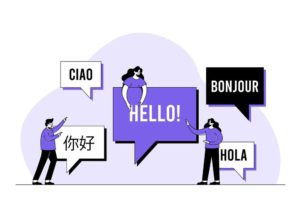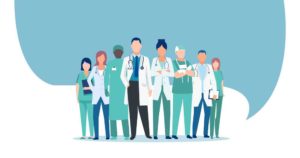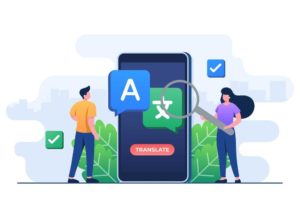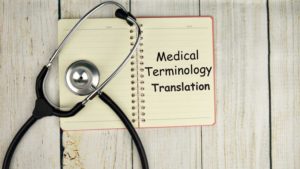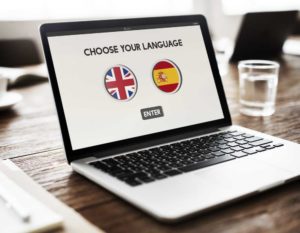Mobile hospitals play a crucial role in providing healthcare services to communities in need, especially in remote areas, disaster-stricken regions, and multilingual communities. These healthcare units on wheels are equipped to address a variety of medical issues and emergencies.
However, there is a significant challenge that mobile hospitals often face – language barriers. The inability to communicate effectively with patients can hinder the quality of care provided. This is where medical translator apps step in, bridging the language gap and ensuring that medical services are accessible to all.
The Role of Mobile Hospitals in Healthcare
In 2020, the World Health Organization reported that mobile hospitals played a pivotal role in responding to the COVID-19 pandemic by expanding healthcare capacity.
The International Federation of Red Cross and Red Crescent Societies underscores their ability to be operational within 24 hours, offering swift responses in emergencies.
These hospitals serve as primary care providers, offering a range of medical services, from treating minor injuries to surgical interventions. They also engage in community outreach, promoting health education and disease prevention.
For instance, Médecins Sans Frontières (Doctors Without Borders) operated 49 mobile clinics in 2019, delivering essential healthcare services to vulnerable populations in 21 countries.
The impact of mobile hospitals is tangible, with countless lives saved and improved through their services, making them a vital asset in healthcare.
How Language Barriers Affect Mobile Hospitals’ Operations
Language barriers can have profound effects on healthcare and mobile hospitals are no exception. Some of the problems that language barriers can cause for mobile hospitals are.
- Delayed Diagnosis: Miscommunication can lead to delays in diagnosing medical conditions, which can be life-threatening in some cases.
- Incorrect Treatment: Inaccurate information may result in incorrect treatments, causing further harm.
- Patient Anxiety: Patients may feel anxious or stressed due to language issues, which is detrimental to their overall well-being.
- Reduced Trust: Trust between patients and healthcare providers can erode due to misunderstandings, hindering the overall quality of care.
Benefits of Medical Translator Apps for Mobile Hospitals
Using medical translator apps in mobile hospitals comes with a number of benefits and some of the main benefits are.

1. Improved Communication
Medical translator apps enhance communication by providing accurate and instantaneous translation services. This allows healthcare providers to gather essential patient information and provide instructions effectively.
For example, if a patient in a mobile hospital is experiencing chest pain and speaks a language unfamiliar to the medical staff, a medical translator app can quickly help diagnose the issue and administer appropriate care.
2. Faster Diagnosis and Treatment
Quicker access to information means faster diagnosis and treatment. In critical medical situations, every second counts.
Medical translator apps can be the difference between life and death. For instance, during a natural disaster, a patient with severe injuries can receive timely treatment, thanks to these apps, even if they speak a different language from the medical team.
3. Cost-Effective Healthcare
By reducing the need for in-person interpreters, medical translator apps can make healthcare services more cost-effective. This is especially important for mobile hospitals, which often operate in resource-constrained environments.
By using a medical translator app, a mobile hospital can allocate resources more efficiently, delivering care to a larger number of patients.
4. Accessibility and Convenience
These apps are easily accessible on mobile devices, making them a convenient tool for healthcare providers in mobile hospitals. Imagine a situation in a multicultural community where a mobile hospital is providing vaccination services.
The medical staff can communicate with people from various linguistic backgrounds effortlessly, ensuring that the vaccination process is smooth and efficient.
What Features Make Translator Apps Important for Mobile Hospitals
Medical translator apps come packed with features that enhance their utility. Some of the features that make these translator apps very important are.
- Multilingual Support: These apps support a wide range of languages, making them versatile and adaptable to diverse patient populations.
- Medical Terminology: They are equipped with extensive medical terminology databases, ensuring that the translations are accurate and contextually relevant.
- Voice and Text Translation: Medical translator apps can translate both spoken and written language, providing flexibility in communication.
- Secure and Private: Patient data is kept secure and private, complying with strict data protection regulations. In this era of data breaches, this feature is crucial in maintaining patient trust and confidentiality.
Usage of Medical Translator Apps for Mobile Hospitals
Medical translation apps have many benefits if successfully integrated into the mobile hospital system. But there are certain things to keep in mind when integrating medical translator apps into mobile.
So, let’s move forward. What are the things you need in order to successfully integrate a medical translator app into the mobile hospital set-up?

- Internet Connectivity
- Training and Support
- Privacy and Data Security
1. Internet Connectivity
Reliable internet connectivity is essential for real-time translation services. In remote areas or disaster-stricken regions, this can be a challenge. Mobile hospitals must have contingency plans in place to address connectivity issues, such as offline capabilities or satellite-based internet access.
2. Training and Support
Healthcare providers should be proficient in using these apps, and technical support should be available in case of any issues. Training programs can include scenarios where medical staff practice using the app to improve their skills.
3. Privacy and Data Security
Patient data security is paramount. Mobile hospitals must strictly adhere to data protection regulations. Patients must trust that their medical information will remain confidential and not be misused.
Real-World Use of Mobile Hospitals
Mobile hospitals are very useful but they are not always viable and can only be used in certain situations. Some of the real-world uses of mobile hospitals are.
1. Disaster Relief
During natural disasters such as earthquakes, hurricanes, or floods, mobile hospitals play a pivotal role in addressing the immediate medical needs of affected communities.
These disaster-stricken areas are often chaotic, with a multitude of languages spoken among both survivors and relief workers. In such a scenario, medical translator apps become indispensable tools for delivering efficient and life-saving care.
2. Remote Areas
According to the United Nations, approximately 55% of the global population has limited access to essential healthcare services, with remote and rural areas facing the most significant barriers.
Mobile hospitals are deployed to bridge this gap, bringing healthcare to people who would otherwise have to travel long distances to access medical facilities.
In these areas, language diversity is common, making effective communication a significant challenge. Medical translator apps address this challenge directly.
Conclusion
Mobile hospitals are beacons of hope, bringing healthcare to the doorstep of those in need, even in the most challenging circumstances. Medical translator apps have revolutionized the way healthcare is delivered in these mobile units. They enhance communication, lead to faster diagnosis and treatment, reduce costs, and make healthcare accessible to diverse patient populations.
FAQs
Medical translation ensures accurate communication between healthcare providers and patients, improving diagnosis and treatment.
Translation apps facilitate real-time language translation, breaking down language barriers in healthcare for effective communication.
Online translation tools in healthcare are digital resources that aid in translating medical information, ensuring accessibility for diverse linguistic backgrounds.
Medical device translation involves translating instructions, labels, and user manuals of medical equipment for global use, ensuring safety and understanding.

